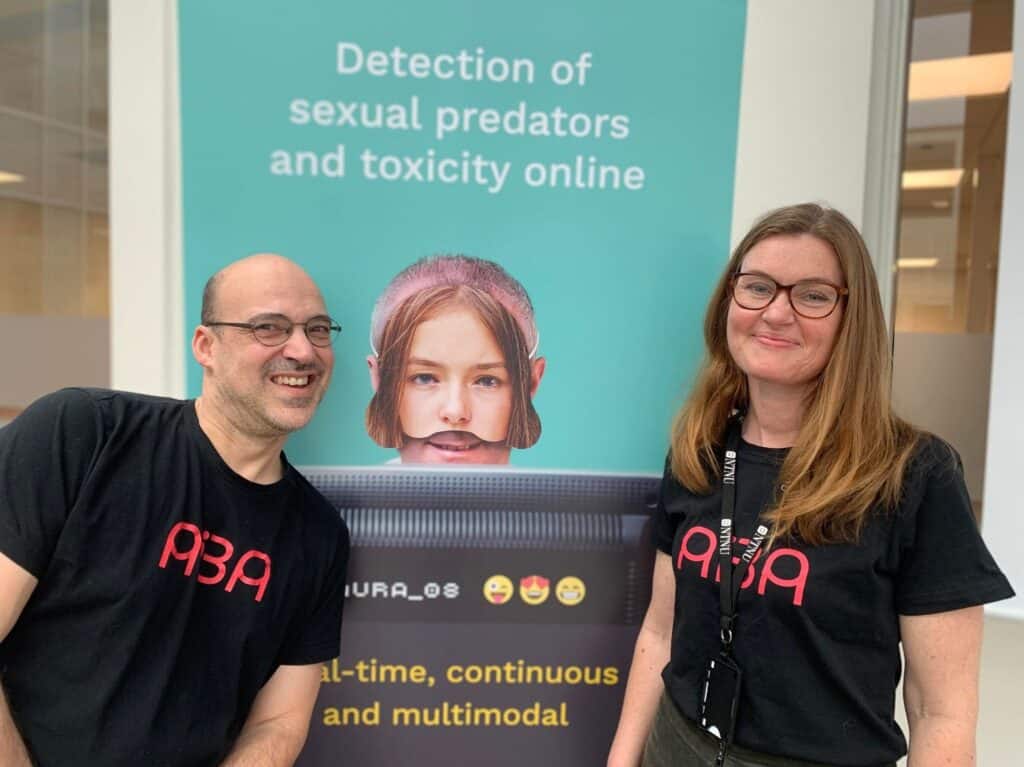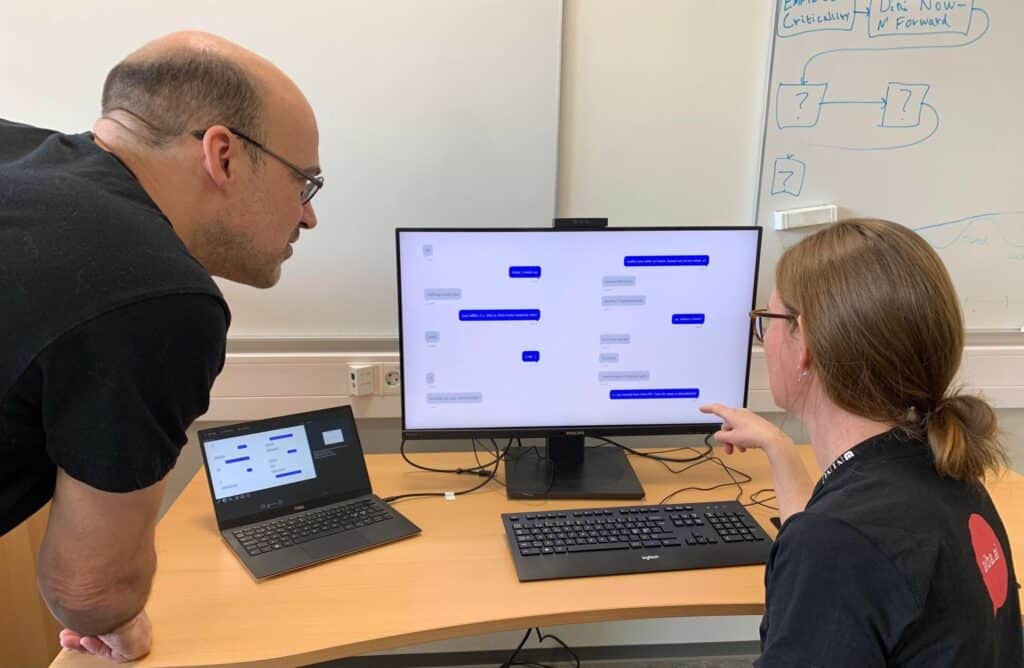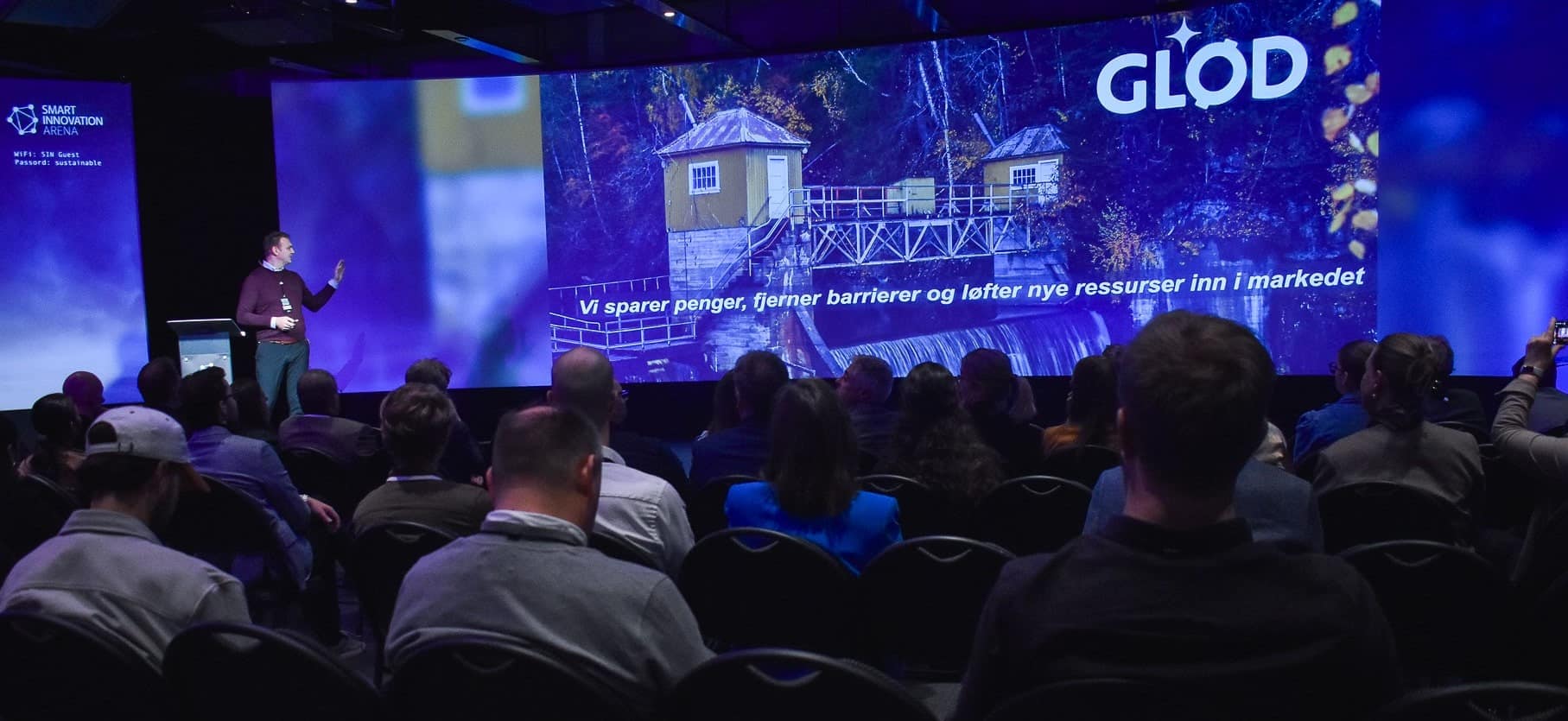Did you know that your sentence structure, use of emojis, speed of keystrokes or choice of words reveals your age group and gender? No? Well, they do. And now is the software AiBA, which manage to identify potential harmful conversations within 20 chat messages, on its way to the market.
By Anja Lillerud, May 1, 2022

Cyber grooming is a major threat to children and youths on the Internet. By impersonating young people through fake online accounts, adults reach out to kids and teenagers on chat and gaming platforms with the intention of making friends with them. Over time they build a trust-based relationship with the children before it turns in to a living nightmare for the young ones.
– The cyber groomers’ purpose is to encourage the kids to send sexualized pictures and nudes of themselves. If they receive any, they demand more. After massive pressure and threats of spread, and in despair to try to avoid the nude photos going viral many young people send new pictures to please the groomer, tells Hege Tokerud, CEO and co-founder of AiBA.
Some relationships escalate because cyber groomers manage to persuade the kids and teenagers to meet in person. Such encounters very often lead to physically sexual assaults.
A proactive solution
By using AI, AiBA trains algorithms to detect potential cyber grooming conversations at an early stage when a connection on a gaming or chat platform where the AiBA solution is implemented, is established. If one is identified, the software alerts the platform owners to make them aware that measures ought to be done.
To ensure the reliability and that correct measures are taken, a human resource is verifying the warning before measures are activated.
– What makes AiBA unique, is the proactive approach to the problem. Our goal is to stop grooming as soon as possible when a relationship to a child is established. Earlier we could detect and identify cyber grooming within 40 chat messages. Now we can do it in less than 20, explains Tokerud.
Expert in behavioural biometrics

Behind the technology presented in AiBA, hides the result of years of research on behavioural biometrics. Structure of sentences, use of emojis, speed and rhythm of keystrokes, and choice of words are elements related to age and gender.
Professor and researcher at Norwegian University of Science and Technology (NTNU), Patrick Bours, is an expert in continuous analysis and behavioural biometrics and had the idea of commercialising the research results.
The technological implementation is done by Inmeta, a Norwegian consulting company in Crayon group, specialized in digital and data driven innovation. The company has more than 200 advisors and consultants based in Oslo, Trondheim, Hamar and Bergen:
– When Hege contacted us for a collaboration on developing the technology needed to realize the AiBA project, there was no doubt. We wanted in! This is a kind of project that matters, and Inmeta want to make footprints, says Henrik Slettene, Manager AI and Machine Learning in Inmeta.
Over the last 7 years Inmeta has delivered 150 machine learning projects to more than 50 companies in both private and public sector. With 25 dedicated data scientists and business advisors focusing solely on the Artificial Intelligence domain, Inmeta addresses the complete value chain including strategy development, data platforms, data science and analytical model development, AI operationalization and business change and development.
No legislation in Europe
Access to behavioural biometric data is crucial to be able to train the AiBA algorithm to detect and identify cyber groomers. Paradoxically, lack of data is one of the major challenges the project faces.
– We experience that some gaming enterprises are reluctant to involve in AiBA because they fear to get linked to cyber grooming in a negative way. Still, everyone acknowledges that cyber grooming is a big and growing problem, and we urge the industry to change their approach to the subject, says Tokerud.
In the United States, the industry is regulated by a law obliging the companies to secure their users. A similar legislation has been attempted to be introduced in the EU without success. The industry argue that the legislation will be too resource-intensive to comply with and hence, it will be a dormant legislation.
– But now we have a solution, Tokerud points out.

– Your children are safe with us
Two global gaming companies targeting children and youths are pilots in the AiBA project. They are going to implement the software, test it on their game platforms and give valuable feedback to improve the product.
– They think the other way around regarding the company’s name being related to cyber grooming. It is important to them to communicate to parents worldwide that “your children are safe on our platforms”, says Tokerud.
The efforts from the two pilots are crucial to train and improve the AiBA algorithm. In addition, the project also have a collaboration with the Norwegian police to discover if the software can be used to detect cyber grooming conversations in ongoing investigations.
– Developing a software like this is extremely demanding and challenging and a never-ending task. Someone will always try to find a way to fool the system putting us in constantly need of data from authentic chat logs, explains Slettene.
Patrick Bours is attending the AI+ conference together with data scientist Saghar Asadi from Inmeta and they will talk more about the research and technology behind AiBA.


